You’ve probably heard of the breathtaking island that lies off the coast of Tanzania, known for its pristine beaches and rich cultural heritage. With over 1 million tourists visiting annually, it’s becoming one of the most sought-after destinations in East Africa.
Imagine yourself relaxing on powdery white sand beaches or exploring the vibrant coral reefs that make it a dream experience for beach lovers and underwater enthusiasts. As you plan your next travel adventure, this comprehensive guide will take you through the top experiences to have on the island, helping you make the most of your trip.
From the historic Stone Town to idyllic beaches and spice tours, there’s something for every type of traveler on this enchanting island.
Discovering the Magic of Zanzibar
With its fascinating history and stunning natural scenery, Zanzibar is an island that will captivate your senses. As you explore this enchanting destination, you’ll uncover a rich tapestry of cultural influences, historical landmarks, and breathtaking landscapes.
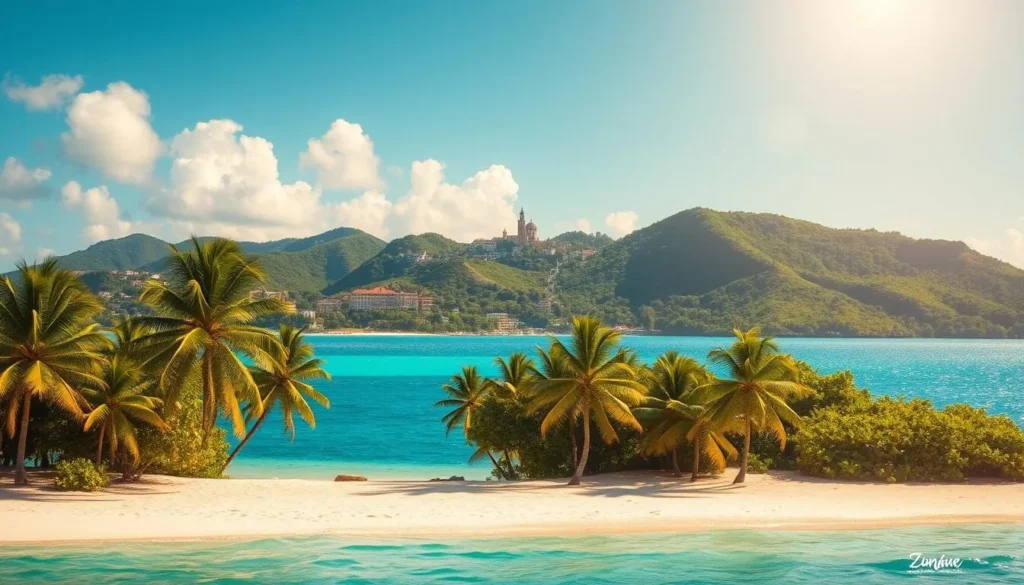
A Brief History of the Spice Island
Zanzibar, known as the Spice Island, has a storied past that dates back centuries. The island’s strategic location made it a prized possession for various empires, including the Portuguese, Omanis, and British. This diverse heritage is reflected in the island’s architecture, cuisine, and cultural practices. You can experience this rich history by visiting the many historical sites, such as the old fort and the House of Wonders in Stone Town.
The island’s history is also marked by its role in the spice trade. Zanzibar was once a major hub for the production and export of spices like cloves, nutmeg, and cinnamon. Today, you can still visit spice plantations and learn about the cultivation and processing of these valuable commodities.
When to Visit Zanzibar
Planning your visit to Zanzibar at the right time can make a significant difference in your experience. The best time to visit is during the two main dry seasons: June to October and December to February. These periods offer pleasant temperatures and minimal rainfall, making them ideal for beach activities and sightseeing.
- The dry seasons provide optimal conditions for exploring the island’s many attractions, from relaxing on beautiful beaches to visiting historic sites.
- Consider tide patterns when planning water activities, as some beaches and attractions are best experienced during specific tide conditions.
- If you’re looking for a more budget-friendly option, consider traveling during the shoulder seasons (November or March-May), when you can enjoy fewer crowds and lower prices, despite occasional rainfall.
By planning your travel to Zanzibar during the right time, you can make the most of your trip and enjoy a wide range of things to do on this captivating island.
Exploring Stone Town: A UNESCO World Heritage Site
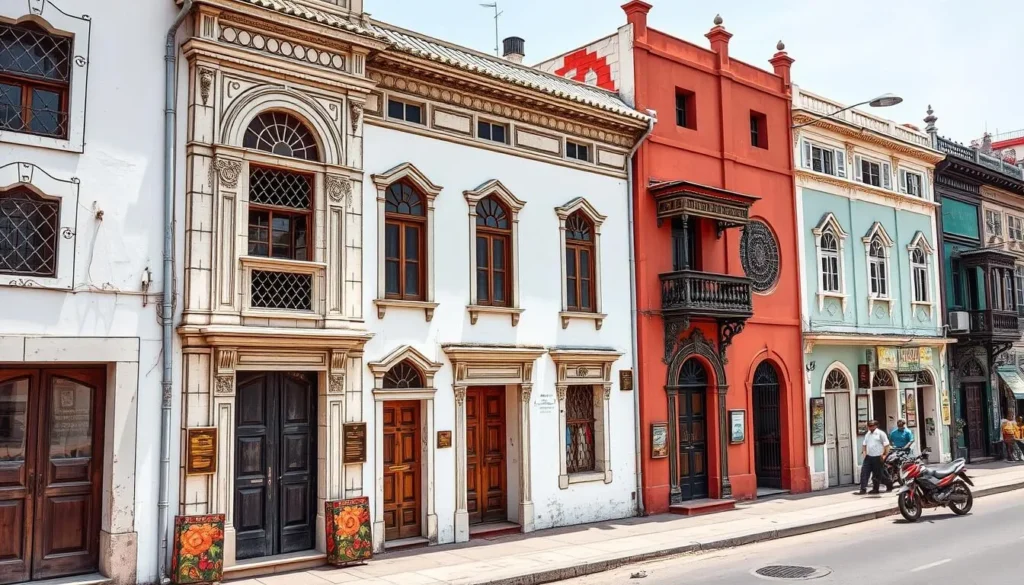
Stone Town, a UNESCO World Heritage Site, is a treasure trove of historical landmarks and cultural experiences waiting to be discovered. As you wander through its labyrinthine alleys, you’ll uncover hidden gems and gain insights into the rich history of this fascinating destination.
Must-See Historical Landmarks
The House of Wonders, the Old Fort, and the Palace Museum are just a few of the many historical landmarks that dot the landscape of Stone Town. These iconic sites offer a glimpse into the island’s complex past, from its colonial era to its current status as a cultural melting pot.
When visiting these landmarks, consider hiring a local guide to provide context and insights that will enrich your experience.
The Famous Carved Doors of Zanzibar
One of the most distinctive features of Stone Town is its exquisitely carved doors, which reflect the island’s rich cultural heritage. These doors are not just beautiful works of art; they also tell stories of the people who built them and the traditions they represent.
Take your time to admire these doors, as each one is unique and offers a glimpse into Zanzibar’s history and craftsmanship.
Navigating Stone Town’s Winding Alleys
The best way to experience Stone Town is to get deliberately lost in its winding alleys, where each turn reveals new surprises. Take your time to wander through the narrow streets, stopping at local spice shops, artisan workshops, and quiet courtyards that provide authentic experiences away from tourist crowds.
Forodhani Gardens offers a perfect place to rest during your exploration, with its waterfront location and food stalls that come alive in the evening.
Some tips for navigating Stone Town include visiting during the early morning or late afternoon when the stone buildings provide welcome shade and the light creates a magical atmosphere for photography. Consider hiring a local guide for your first exploration to gain insights into the history and cultural significance of various landmarks before venturing out on your own.
Prison Island: Home to Giant Aldabra Tortoises
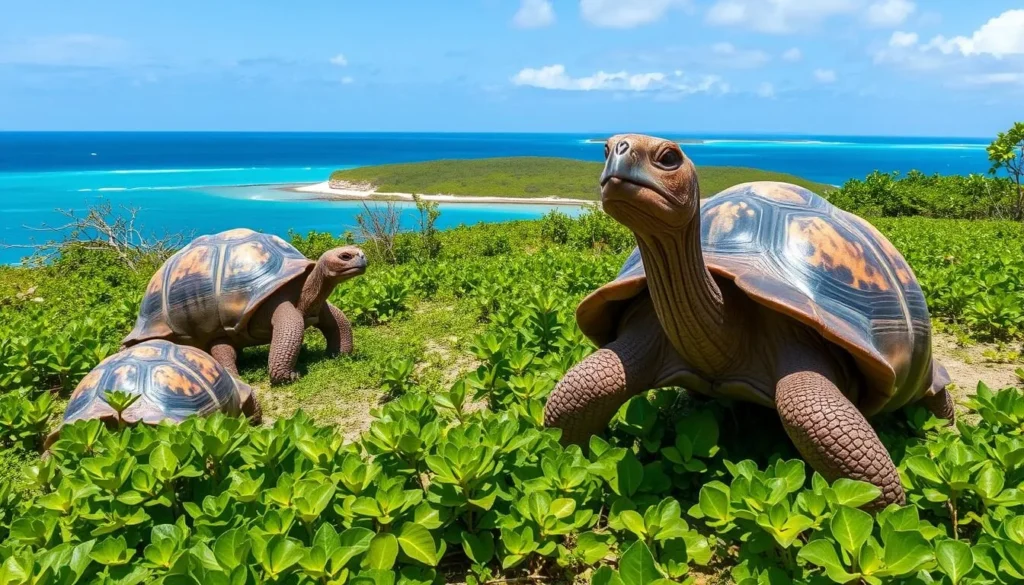
A short boat ride from Zanzibar takes you to Prison Island, home to some of the world’s oldest tortoises. This island, steeped in history and harboring unique wildlife, is a must-visit for anyone traveling to Zanzibar.
The History Behind the Island
Originally known as Prison Island, this destination has a rich and varied past. It was initially intended as a quarantine station for slaves and later served as a prison. Today, it’s a sanctuary for giant Aldabra tortoises.
The island’s history dates back to the early 20th century when it received its first tortoises as a gift from the British governor of the Seychelles in 1919. Starting with just four tortoises, the population has grown into a thriving sanctuary.
Meeting the Century-Old Tortoises
The giant Aldabra tortoises are the main attraction on the island, with some being over a century old. The oldest tortoise reportedly reached 196 years, making them a truly remarkable sight.
- The tortoises were originally a gift from the British governor of the Seychelles in 1919, starting with just four tortoises that have since grown into a thriving sanctuary population.
- Visitors can observe these gentle giants up close, learning about their conservation status as one of the few remaining tortoise species that once flourished in the Indian Ocean islands.
- The best time to visit the tortoises is in the early morning when they are more active and the island is less crowded with tourists.
- For an ethical experience, maintain a respectful distance from the tortoises, avoid touching them unnecessarily, and only feed them under the guidance of sanctuary staff.
By following these guidelines, visitors can ensure a positive experience for both themselves and the tortoises, contributing to the conservation of these magnificent creatures on the island.
Nakupenda Sandbank: Paradise on a Strip of Sand
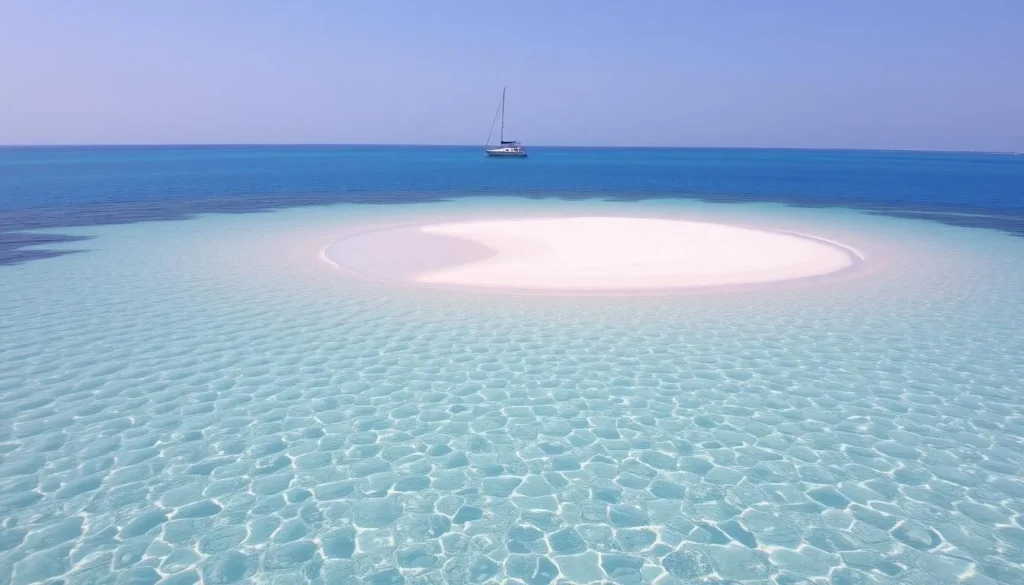
Nakupenda Sandbank, which translates to ‘I love sand’ in Swahili, is a breathtakingly beautiful sandbank that will leave you spellbound. Located off the coast of Zanzibar, this picturesque destination is a must-visit during your trip to the Spice Island.
What Makes Nakupenda Special
Nakupenda Sandbank is a true gem, boasting pristine waters and powdery white sand. The sandbank is only accessible during low tide, making the timing of your visit crucial. Arriving at the right time ensures that you get to experience the sandbank at its best.
One of the highlights of visiting Nakupenda is the opportunity to relax on its idyllic beach. With the clear water lapping gently against the shore, it’s the perfect spot to unwind and soak up the sun.
Tips for Visiting the Sandbank
To make the most of your visit to Nakupenda Sandbank, consider the following tips:
- Timing your visit to Nakupenda Sandbank is crucial – plan to arrive during low tide when the sandbank is fully exposed and at its most impressive.
- Most boat trips to the sandbank depart from Stone Town and often combine the visit with other attractions like Prison Island for a full day of adventure.
- Bring plenty of sun protection as there is no natural shade on the sandbank – a hat, high-SPF sunscreen, and perhaps a beach umbrella are essential for comfort.
- Pack water shoes if you have sensitive feet, as the sand can get extremely hot during the day, and there may be some coral fragments mixed with the sand.
- Consider bringing snorkeling gear to explore the clear water around the sandbank, where you might spot colorful fish and small coral formations.
By following these tips and being mindful of the tide and time of your visit, you can ensure a memorable and enjoyable trip to Nakupenda Sandbank.
Beach Paradise: Zanzibar’s Most Beautiful Beaches
With its crystal-clear waters and powdery white sand, Zanzibar’s beaches are a true paradise. The island boasts a diverse range of beaches, each with its unique character and attractions. Whether you’re looking for relaxation, adventure, or a mix of both, Zanzibar’s beaches have something for everyone.
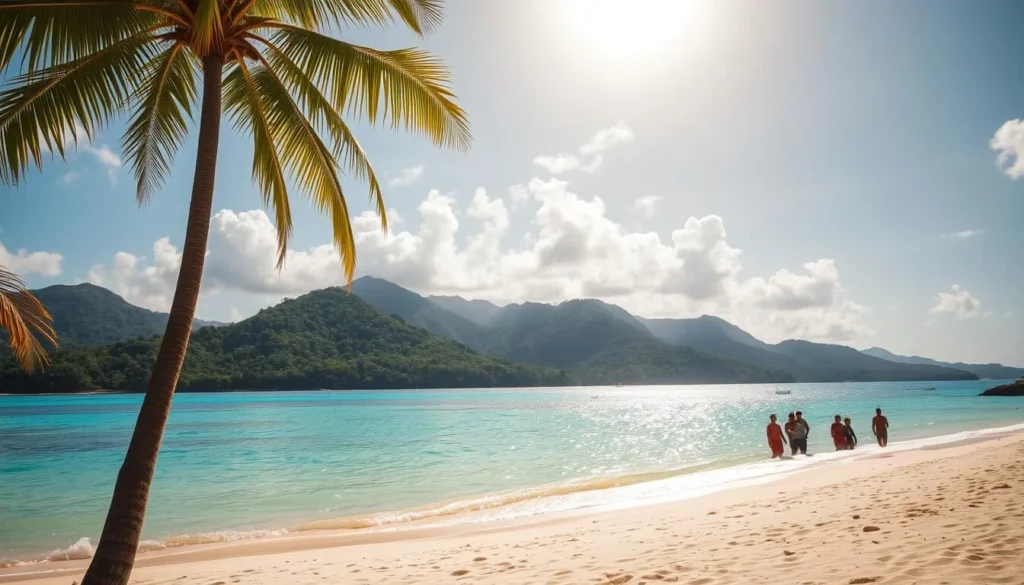
Nungwi Beach: Pristine Waters and Vibrant Nightlife
Nungwi Beach, located on the northern tip of Zanzibar, is known for its pristine waters and vibrant nightlife. Visitors can enjoy a range of activities, from snorkeling and diving to beach parties and live music. The beach is lined with restaurants and bars, offering a variety of local and international cuisine.
Kendwa Beach: Perfect Sunset Views
Kendwa Beach, just south of Nungwi, is famous for its perfect sunset views. The beach hosts a weekly full moon party, attracting visitors from all over the island. Kendwa is also a great spot for swimming and snorkeling, with clear waters and a coral reef just offshore.
Paje Beach: A Kitesurfer’s Dream
Paje Beach, on Zanzibar’s southeast coast, is a haven for kitesurfers. The beach offers consistent winds and shallow waters, making it an ideal spot for both beginners and experienced kitesurfers. Visitors can also enjoy swimming, snorkeling, and relaxing on the beach.
Hidden Beach Gems Off the Tourist Trail
Beyond the famous beaches, Zanzibar hides several secluded shores that offer tranquil experiences away from the crowds. Matemwe Beach on the northeast coast provides an authentic fishing village atmosphere alongside pristine sands. The beaches of Michamvi Peninsula offer a perfect balance of natural beauty and seclusion, with fewer tourists and more untouched landscapes.
| Beach | Location | Main Attraction |
|---|---|---|
| Nungwi Beach | Northern tip of Zanzibar | Vibrant nightlife |
| Kendwa Beach | South of Nungwi | Perfect sunset views |
| Paje Beach | Southeast coast | Kitesurfing |
| Matemwe Beach | Northeast coast | Authentic fishing village atmosphere |
For those looking for a more exclusive beach experience, consider visiting Mnemba Island’s shores. While the island itself is private, the surrounding beaches and reefs are accessible by boat and offer some of Zanzibar’s most pristine environments.
Underwater Adventures: Snorkeling and Diving Spots
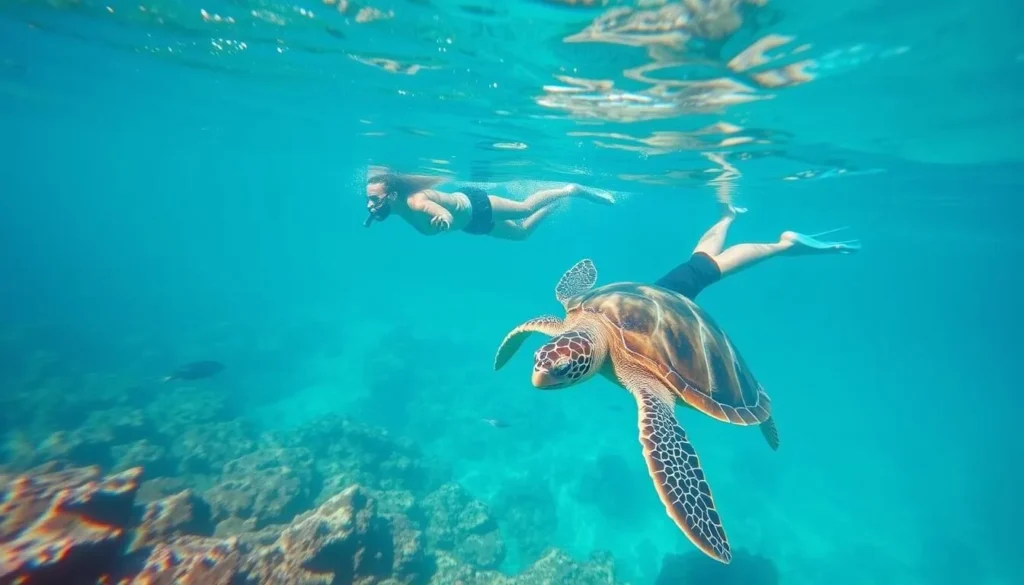
Snorkeling and diving in Zanzibar reveal a world of breathtaking beauty, teeming with life and color. The island’s coral reefs and diverse marine life make it an ideal destination for underwater enthusiasts. Whether you’re a seasoned diver or a beginner looking to explore the ocean’s depths, Zanzibar has something to offer.
Mnemba Atoll: Zanzibar’s Premier Diving Location
Mnemba Atoll is renowned for its exceptional diving experiences. This protected marine conservation area is home to an incredible array of marine life, including whale sharks, dolphins, and sea turtles. The atoll’s coral reefs are vibrant and healthy, providing a rich tapestry of colors and textures to explore. Divers can expect to see a variety of fish species, making it a truly unforgettable experience.
Tumbatu Island: Coral Gardens and Marine Life
Tumbatu Island offers some of the best snorkeling opportunities in Zanzibar. The island’s coral gardens are teeming with marine life, including angelfish, butterflyfish, and parrotfish. The clear waters provide excellent visibility, allowing snorkelers to fully appreciate the beauty of the underwater world. Exploring the coral reefs here is a highlight of any trip to Zanzibar.
Best Snorkeling Tours and Operators
When choosing snorkeling or diving operators in Zanzibar, look for those committed to marine conservation practices, employing knowledgeable local guides, and maintaining small group sizes. The best snorkeling tours provide quality equipment, comprehensive safety briefings, and guides who can identify marine species and explain the coral reef ecosystem. Consider booking with companies that participate in coral restoration projects or other conservation initiatives, as responsible travel choices help preserve Zanzibar’s marine treasures for future generations.
- When choosing snorkeling or diving operators in Zanzibar, look for those committed to marine conservation practices, employing knowledgeable local guides, and maintaining small group sizes.
- The best snorkeling tours provide quality equipment, comprehensive safety briefings, and guides who can identify marine species and explain the coral reef ecosystem.
- Many reputable operators offer combination boat trips that include visits to multiple snorkeling spots, providing a varied experience of Zanzibar’s underwater environments.
- Consider booking with companies that participate in coral restoration projects or other conservation initiatives, as responsible travel choices help preserve Zanzibar’s marine treasures for future generations.
- For the most memorable experience, seek out operators who take you to less-visited snorkeling spots, away from the crowds that can sometimes overwhelm popular areas like Mnemba Atoll.
Spice Up Your Trip: Zanzibar’s Famous Spice Tours
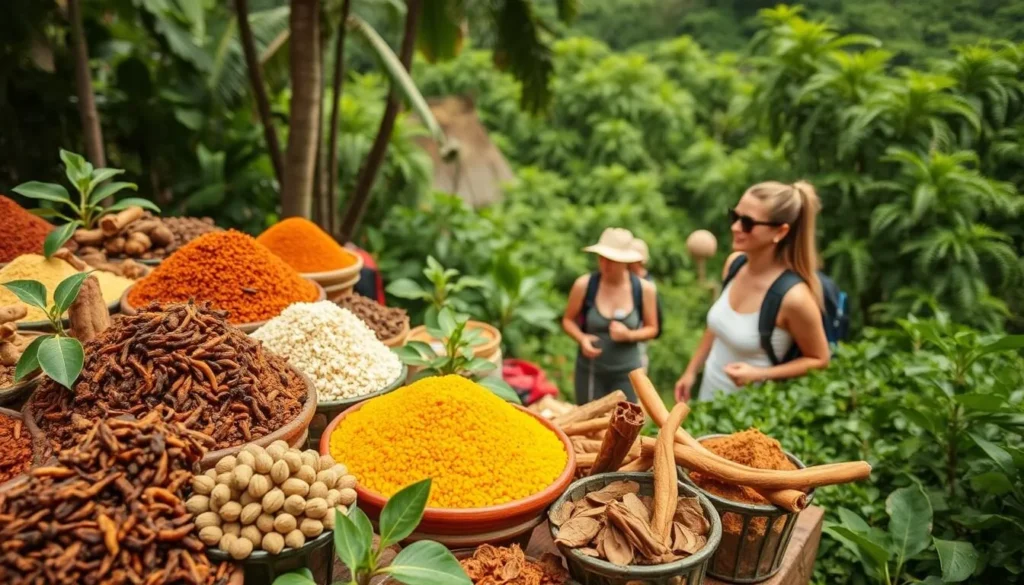
Discover the essence of Zanzibar through its spice tours, a journey that combines history, culture, and sensory delights. Zanzibar, known as the Spice Island, has been a major player in the global spice trade for centuries. The island’s unique blend of spices, including cloves, nutmeg, and cinnamon, has made it a fascinating destination for visitors.
The History of Spice Trade in Zanzibar
The history of spice trade in Zanzibar dates back to the 16th century when the Portuguese first introduced cloves to the island. However, it was the Omani Arabs who significantly expanded the spice trade, making Zanzibar a major hub. The spice trade played a crucial role in shaping the island’s economy and culture, attracting traders from around the world.
Cloves were particularly valuable, and Zanzibar became one of the world’s largest producers. The spice trade also influenced the local cuisine, with spices being used in various traditional dishes.
What to Expect on a Spice Tour
On a spice tour, you can expect to explore lush plantations where various spices are grown. You’ll have the opportunity to see, smell, and taste different spices, learning about their uses and significance. Many tours also include visits to local farms and villages, providing insights into the traditional practices of spice cultivation and processing.
Some spice tours offer hands-on experiences, such as cooking local dishes using freshly harvested spices. This allows you to immerse yourself in the local culture and take home new culinary skills.
- Zanzibar’s famous cloves make an excellent souvenir, with their intense aromatic quality far surpassing what you typically find in supermarkets back home.
- Vanilla pods from Zanzibar are particularly prized for their rich flavor and aroma, making them a valuable addition to your home cooking arsenal for desserts and baked goods.
- Consider purchasing whole nutmeg with the red mace still attached – not only is this visually striking, but the freshness and quality will elevate your food with authentic Zanzibari flavor.
- Unique spice blends like pilau masala (for rice dishes) and Zanzibar curry powder offer convenient ways to recreate the island’s distinctive food flavors in your home kitchen.
- For the best quality and value, purchase spices directly from farms during your tour or from reputable spice shops in Stone Town rather than from tourist markets where quality may be inconsistent.
Best Spices to Bring Home as Souvenirs
When it comes to bringing home souvenirs, Zanzibar’s spices are among the best choices. The island is renowned for its high-quality cloves, vanilla, and nutmeg. These spices not only make great gifts but also allow you to relive your Zanzibari experience through the flavors and aromas they provide.
Some of the most popular spice souvenirs include cloves, vanilla pods, and nutmeg. You can also find pre-mixed spice blends that are unique to Zanzibar, making them a great way to bring a taste of the island back home.
Safari Blue: The Ultimate Ocean Adventure
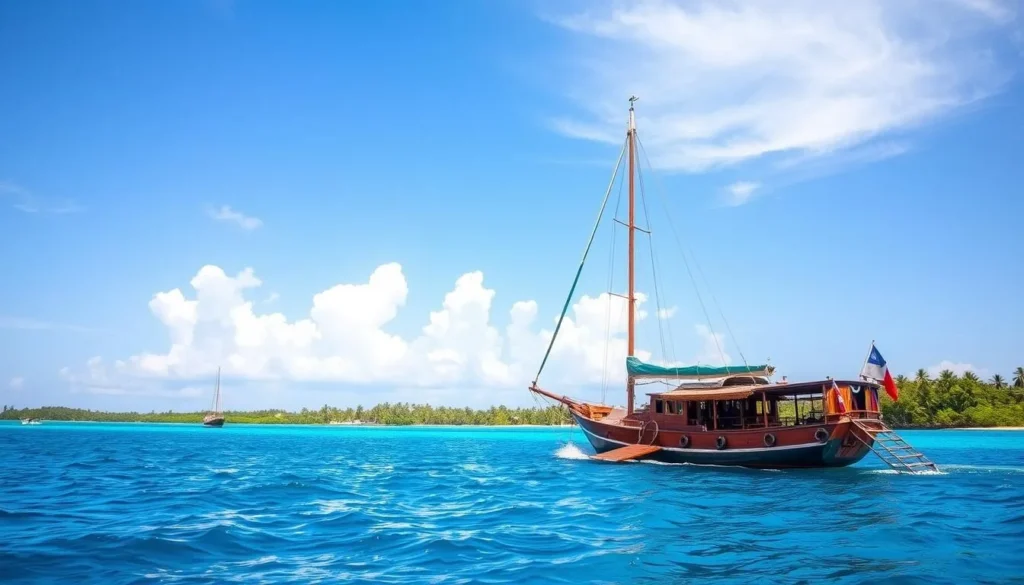
Discover the essence of Zanzibar’s marine life on the Safari Blue tour, a day trip that promises unforgettable moments. This adventure is a must-experience when visiting Zanzibar, offering a mix of relaxation, exploration, and delicious food.
What to Expect on a Safari Blue Tour
On your dhow cruise, you’ll sail through the pristine waters of the Menai Bay, known for its rich marine biodiversity. The tour includes a visit to a secluded island where you can enjoy a sumptuous seafood feast, featuring freshly grilled lobster, fish, and calamari. Snorkeling is a big part of the experience, with an opportunity to explore the underwater world teeming with tropical fish and colorful coral.
The trip is designed to make the most of your day out on the water, ensuring a relaxing and enjoyable experience aboard the traditional dhow. You’ll have ample time to soak up the sun, enjoy the serene surroundings, and take in the breathtaking views.
Tips for Making the Most of Your Safari Blue Experience
To ensure you have a fantastic time on your Safari Blue adventure, consider the following tips:
- Book your Safari Blue trip during weekdays rather than weekends to avoid the larger crowds that can sometimes diminish the tranquility of the experience.
- Wear reef-safe sunscreen and bring a hat, sunglasses, and perhaps a light cover-up to protect yourself from the intense sun reflected off both the water and the white dhow sails.
- Don’t miss the legendary seafood feast that’s part of the Safari Blue experience – freshly grilled lobster, fish, and calamari prepared on a secluded island make for an unforgettable meal.
- Consider bringing your own snorkeling mask if you have one that fits well, though the tour provides equipment, having your personal gear can enhance comfort during your underwater explorations.
- Prepare for a full day on the boat by bringing any medications you might need, extra drinking food and water, and a dry bag to protect cameras and phones while enjoying this quintessential Zanzibar trip.
Jozani Forest: Encounter the Rare Red Colobus Monkeys
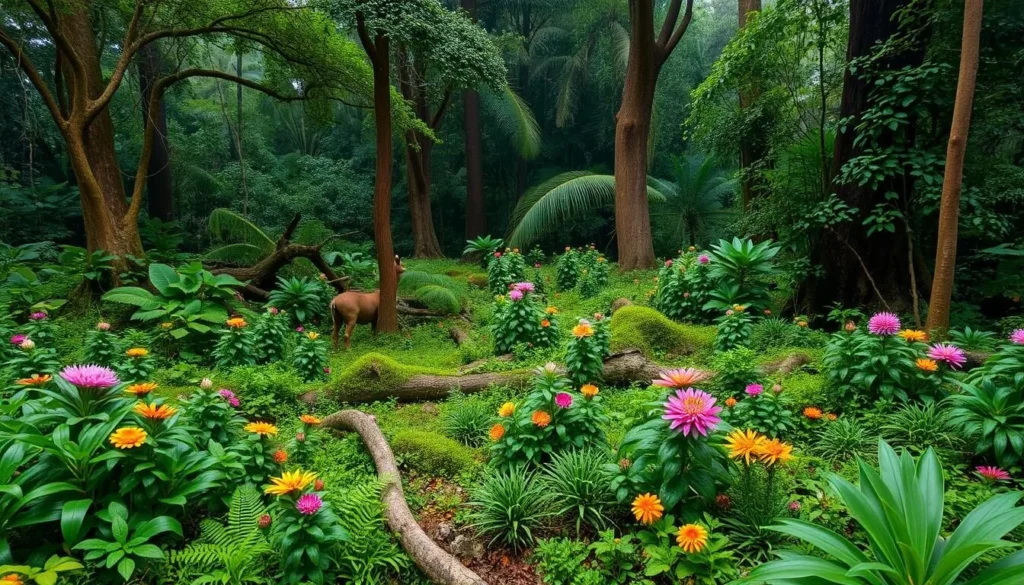
As you step into Jozani Forest, you’re immediately immersed in a lush, vibrant ecosystem teeming with life. This enchanting forest, the largest on Zanzibar, is a haven for nature lovers and adventure seekers alike.
Wildlife Spotting in Jozani National Park
Jozani Forest is renowned for its diverse wildlife, particularly the rare Red Colobus Monkeys. These endangered primates are a highlight of any visit, offering a unique opportunity to observe them in their natural habitat. As you explore the forest, keep an eye out for other species such as the sykes monkeys and a variety of birdlife.
The forest’s rich biodiversity is supported by its unique ecosystem, where the forest floor is teeming with life. Guides are available to help you spot the wildlife and explain the ecological importance of this forest ecosystem.
The Mangrove Boardwalk Experience
One of the unique features of Jozani Forest is its Mangrove Boardwalk, which offers a fascinating glimpse into a coastal ecosystem that changes dramatically with the tide. As you walk along the elevated wooden paths, you’ll witness how mangrove trees have adapted to life in saltwater, with specialized root systems that rise above the water like stilts during high tide.
- The Mangrove Boardwalk in Jozani Forest offers a unique opportunity to explore a coastal ecosystem that changes dramatically with the tides, creating a dynamic environment where land meets sea.
- Walking along the elevated wooden paths, you’ll witness how mangrove trees have adapted to life in saltwater, with specialized root systems that rise above the water like stilts during high tide.
- The mangrove forest serves as a crucial nursery for marine life, with many fish species beginning their life cycle in these protected waters before venturing out to the open ocean.
- During your boardwalk experience, guides explain how mangroves protect Zanzibar’s coastline from erosion and storm damage, highlighting their ecological importance beyond their beauty.
- The best time to visit the mangroves is during a changing tide, when you might witness the water level rising or falling, bringing with it crabs, mudskippers, and other creatures that thrive in this transitional zone.
Visiting the Mangrove Boardwalk is a memorable experience that highlights the importance of preserving such unique ecosystems. It’s a great way to spend your time in Zanzibar, exploring the natural beauty of the island.
Zanzibar, Tanzania: Best Things to Do for Culture Lovers
As a melting pot of African, Arabic, and European influences, Zanzibar is a cultural haven where visitors can engage in numerous activities that highlight its diverse heritage. The island offers a range of experiences that allow travelers to delve into its rich cultural identity.
Visit a Traditional Swahili Healer
One of the unique cultural experiences Zanzibar offers is visiting a traditional Swahili healer. These healers use a combination of ancient practices and local botanicals to treat ailments, providing a glimpse into the island’s traditional medicine. You can learn about the various herbs and remedies used, gaining insight into the local culture’s approach to health and wellness.
Experience a Local Cooking Class
Participating in a local cooking class is an excellent way to immerse yourself in Zanzibari culture. You’ll have the opportunity to learn how to prepare traditional dishes using local ingredients and cooking techniques. From the famous urojo (Zanzibar mix) to seafood curries, you’ll discover the flavors that define Zanzibari cuisine. A cooking class is not just about cooking; it’s an experience that brings you closer to the local life and culture.

Attend a Taarab Music Performance
Taarab music is a significant part of Zanzibar’s cultural expression, blending African rhythms with Arabic melodies and poetic Swahili lyrics. Attending a live Taarab performance offers a window into the island’s multicultural heritage. The music reflects centuries of cultural exchange between Africa, the Middle East, and India, creating a rich, layered sound. You’ll experience the vibrant culture and music that have been influenced over time.
- Taarab music is the soul of Zanzibar’s cultural expression, blending African rhythms with Arabic melodies and poetic Swahili lyrics that tell stories of love, community life, and social commentary.
- Attending a live Taarab performance offers a window into Zanzibar’s multicultural heritage, as the music itself reflects centuries of cultural exchange between Africa, the Middle East, and India.
- Traditional Taarab orchestras feature instruments like the qanun (zither), oud (lute), violin, accordion, and various percussion instruments, creating a rich, layered sound that has evolved over time.
Unique Experiences in Zanzibar’s Villages
Zanzibar’s villages are a window into the island’s rich cultural heritage. As you explore these traditional communities, you’ll discover the island’s history, customs, and way of life.
Jambiani Village: Meet the Seaweed Farmers
Jambiani Village is a thriving community of seaweed farmers. You can visit the village and learn about the process of seaweed farming, from harvesting to drying.
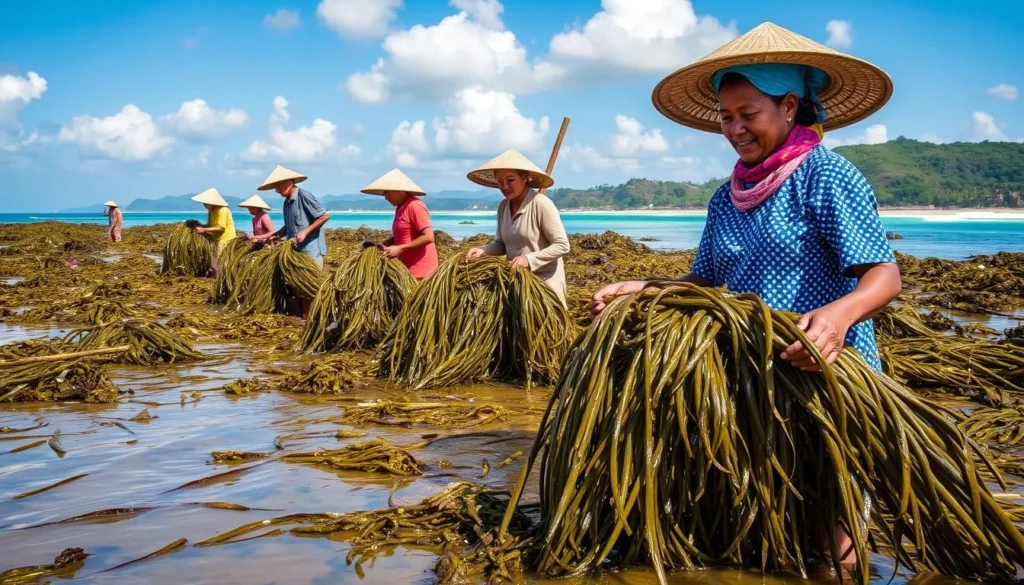
The seaweed farmers of Jambiani are skilled and dedicated individuals who work tirelessly to produce high-quality seaweed. By visiting the village, you’ll gain a deeper understanding of their craft and the importance of seaweed farming to the local economy.
Nungwi Village: Watch Traditional Dhow Building
Nungwi Village is the epicenter of traditional dhow building in Zanzibar. You can visit the dhow building sites on the beach and witness the construction process, from shaping the keel to the final touches of caulking and painting.
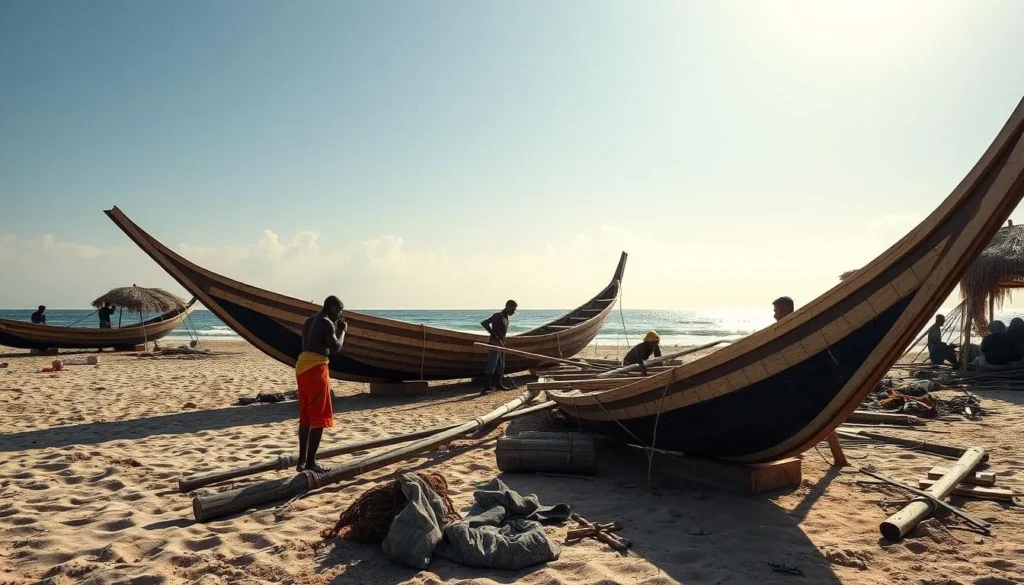
The skilled craftsmen of Nungwi Village use traditional techniques passed down through generations to create these iconic wooden vessels. By watching them at work, you’ll gain a deeper appreciation for the craft and time that goes into building a dhow, and you’ll see how it reflects the island’s rich maritime life.
Transparent Kayaking Between Nungwi and Kendwa
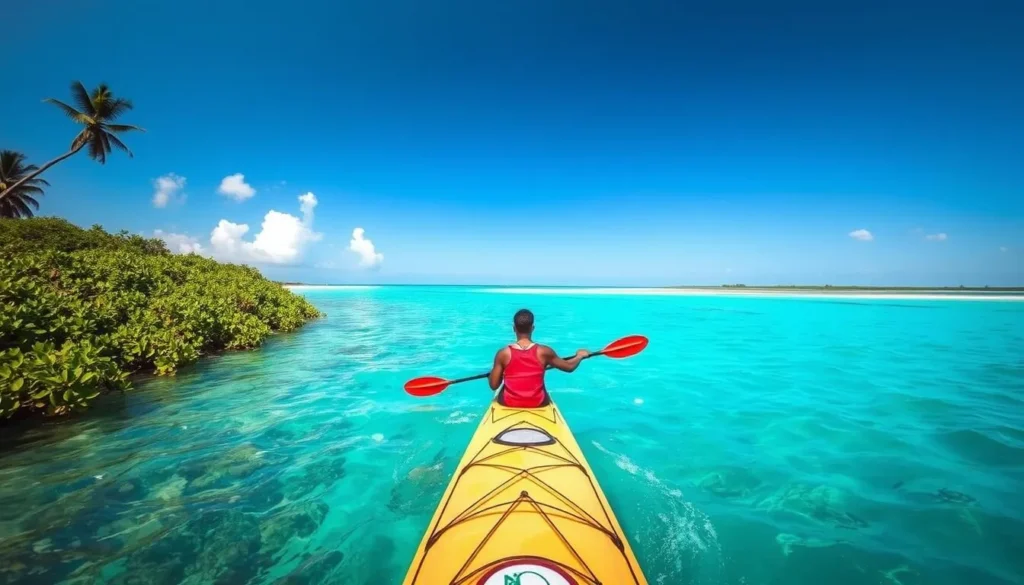
Paddle through the crystal-clear waters of Zanzibar on a transparent kayak adventure between Nungwi and Kendwa. This unique experience allows you to explore the island’s stunning coastline from a new perspective, getting up close to marine life and enjoying the breathtaking views of Zanzibar’s most beautiful beaches.
What Makes This Experience Special
Transparent kayaking offers a thrilling way to discover Zanzibar’s underwater world without getting wet. The transparent bottom of the kayak allows you to observe the marine life beneath you, creating an unforgettable experience. You’ll have the chance to see a variety of fish species and coral formations, making it an exciting activity for nature lovers and adventure seekers alike.
The calm waters between Nungwi and Kendwa provide ideal conditions for kayaking, with the clear water offering visibility that makes the experience even more magical.
Best Time for Kayaking Adventures
Timing is crucial for a great kayaking experience. Here are some tips to make the most of your adventure:
- Early morning is the optimal time for transparent kayaking, when the water is typically calmest and clearest, providing the best visibility.
- The late afternoon offers another excellent time slot, with the added bonus of potentially witnessing a spectacular Zanzibar sunset from the water as you paddle between the beaches.
- Plan your kayaking adventure during high tide when possible, as this provides more clearance over coral formations.
- Choose a day with minimal wind for the most stable kayaking conditions.
- Consider the timing of your activity in relation to beach traffic to avoid crowds.
By planning your transparent kayaking trip during these times, you can ensure a memorable and enjoyable activity on the water, with a chance to witness a stunning sunset.
Hidden Gems: Lesser-Known Attractions in Zanzibar
Zanzibar is more than just its famous Stone Town and pristine beaches; it has a wealth of hidden gems to discover. While many visitors are drawn to the island’s well-known attractions, there are several lesser-known spots that offer a unique and authentic experience.
Kuza Cave: Swim in a Freshwater Lagoon
Located near the village of Mangapwani, Kuza Cave is a natural freshwater lagoon that’s perfect for a refreshing swim. The cave is surrounded by lush vegetation and offers a serene atmosphere, making it an ideal spot to relax and unwind.
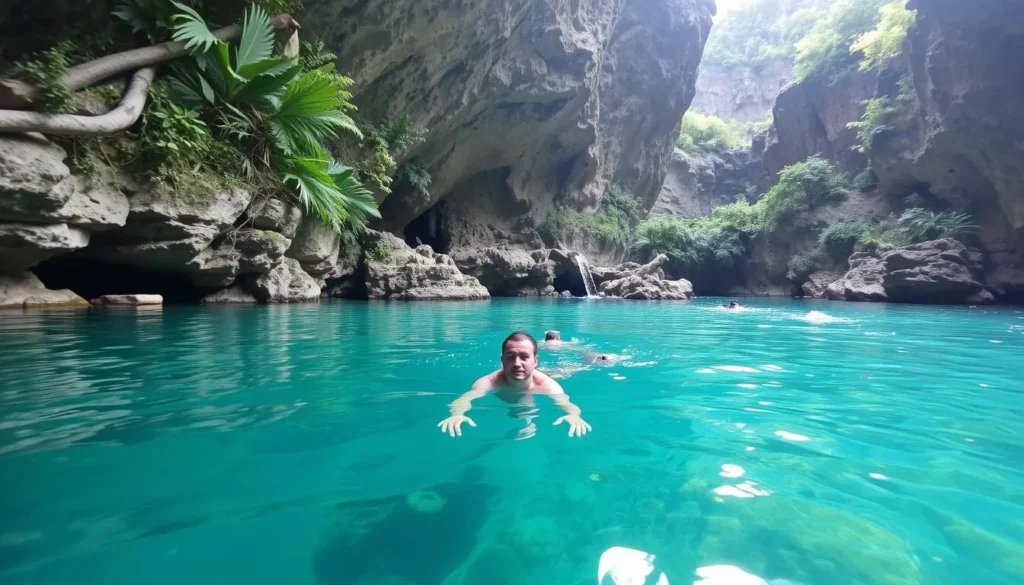
The Shiraz Ruins on Tumbatu Island
Tumbatu Island, located just off the coast of Zanzibar, is home to the ancient Shiraz Ruins. This historical site offers a glimpse into the island’s rich cultural heritage, with remains dating back to the 14th century.
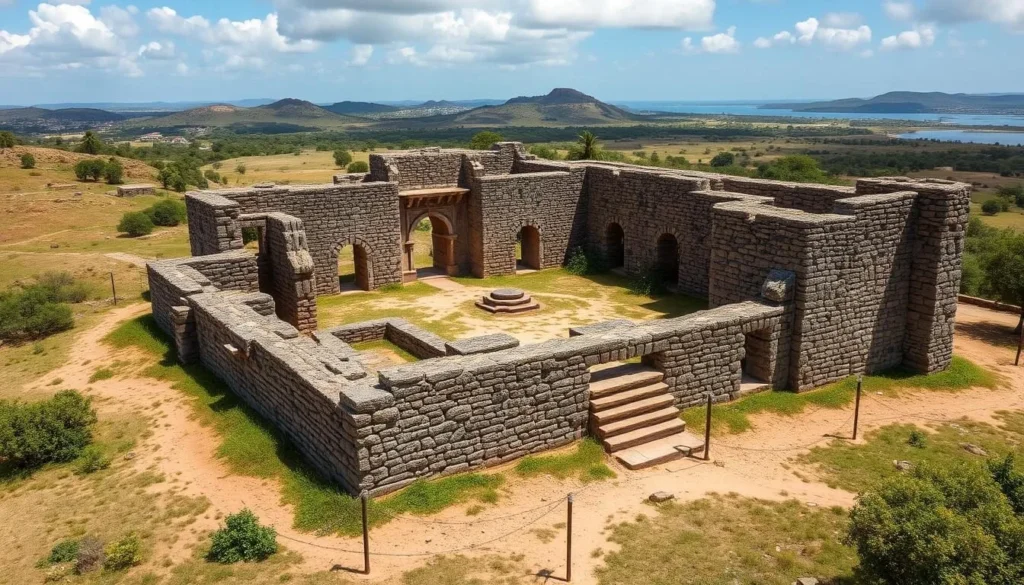
Starfish Beach: A Natural Wonder
Starfish Beach, accessible only by boat from Michamvi or Pongwe, is a hidden gem that’s home to an abundance of vibrant starfish. The beach’s soft white sand and shallow, clear water make it an ideal spot for observing these fascinating marine creatures.
- Starfish Beach earned its name from the abundance of vibrant red, orange, and purple starfish that can be found resting on its soft white sand.
- The remote location means fewer visitors and a more pristine environment than many of Zanzibar’s more famous beaches.
- The shallow, clear water allows for easy observation of these fascinating echinoderms in their natural habitat.
- Plan your day trip to coincide with low tide when the starfish are most visible.
Exploring these hidden gems is a great way to experience the authentic beauty and culture of Zanzibar. Whether you’re interested in history, nature, or simply relaxing on a beautiful beach, there’s something for everyone on this enchanting island.
Culinary Delights: Where to Eat in Zanzibar
When in Zanzibar, you’ll discover a world of culinary delights that blend traditional and modern flavors. The island offers a diverse range of dining experiences, from seafood restaurants perched on the ocean to bustling night markets and cozy coffee houses.
The Rock Restaurant: Dining on the Ocean
The Rock Restaurant is a must-visit for any food lover. Located on a rocky outcrop, this restaurant offers a unique dining experience with its seafood dishes being the highlight. You can enjoy your meal while surrounded by the soothing sounds of the ocean.
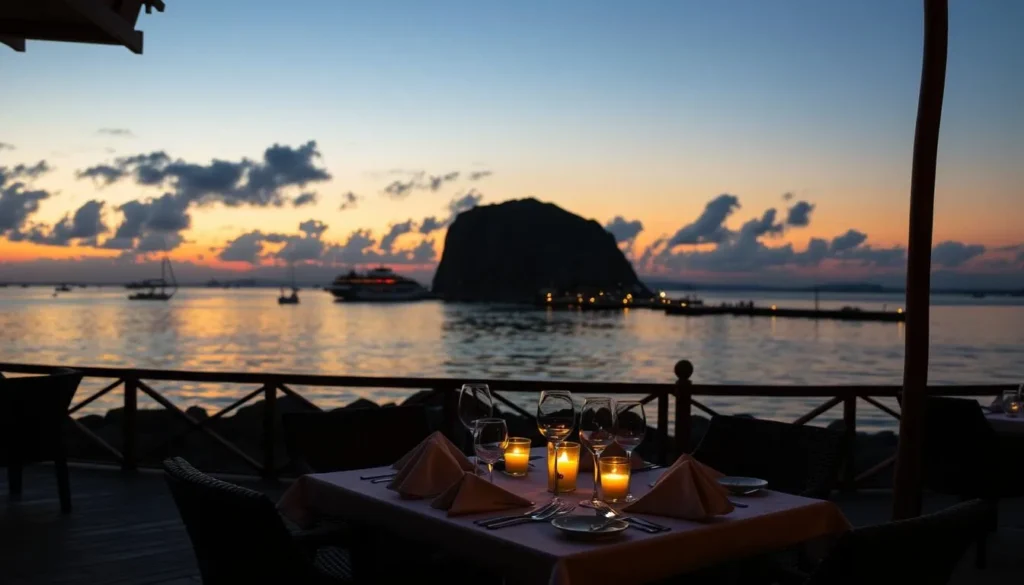
Forodhani Gardens Night Market
For a more casual and vibrant dining experience, head to the Forodhani Gardens Night Market. This bustling market comes alive in the evening, offering a variety of local street food, including grilled meats and seafood. It’s a great place to sample local cuisine and enjoy the lively atmosphere.
Zanzibar Coffee House: A Taste of Local Brew
For coffee enthusiasts, the Zanzibar Coffee House is a haven. Located in one of the oldest buildings in Stone Town, this café serves high-quality Arabica coffee grown on the owner’s family plantation. You can enjoy your coffee in the tranquil rooftop terrace, taking in the views of the city.
- Zanzibar Coffee House occupies one of the oldest buildings in Stone Town, a beautifully restored traditional Arabian-style structure.
- The coffee served here is grown on the owner’s family plantation in southern Tanzania, then roasted and prepared on-site.
- Beyond just coffee, the café serves homemade pastries, cakes, and light meals that blend Zanzibari flavors with international café fare.
- The rooftop terrace provides stunning views over the rooftops of Stone Town, creating a tranquil experience.
Shopping for Souvenirs: What to Buy in Zanzibar
As you explore Zanzibar, you’ll discover a range of souvenirs that embody the island’s vibrant culture and history. From traditional spices and local crafts to unique pieces of artwork, there’s something for every traveler to take home.
Darajani Market: Spices and Local Crafts
Darajani Market, located in the heart of Stone Town, is a bustling hub for local commerce and a fantastic place to find authentic souvenirs. Here, you can browse through an array of spices, including the famous Zanzibari cloves and cinnamon, which make for great additions to your kitchen at home. The market also offers a variety of local crafts, such as intricately designed wooden carvings and woven baskets, which reflect the island’s rich cultural heritage.
When shopping at Darajani Market, be sure to engage with the local vendors, who are often happy to share stories about their products and the local culture. This not only enhances your shopping experience but also supports the local community in a meaningful way.
| Local Craft | Description | Price Range |
|---|---|---|
| Wooden Carvings | Intricately designed carvings made from local wood | $10-$50 |
| Woven Baskets | Handwoven baskets using traditional techniques | $5-$20 |
| Spice Blends | Unique blends of spices grown in Zanzibar | $3-$10 |
Handmade Jewelry and Artwork
Zanzibar is renowned for its distinctive handmade jewelry, which often incorporates traditional Swahili designs and local materials like silver, brass, and gemstones. Local artisans create beautiful pieces that make for meaningful souvenirs, ranging from intricately designed silver filigree work to contemporary designs using local materials. You can find these unique pieces in local shops and markets, or even directly from the artisans themselves.
The island is also known for its vibrant art scene, with painters and sculptors drawing inspiration from Zanzibar’s landscapes, marine life, and cultural traditions. Tinga Tinga paintings, characterized by bright colors and stylized designs of African wildlife, are particularly popular among visitors. By supporting local artisans, you’re contributing to the local economy and taking home a piece of the island’s culture.
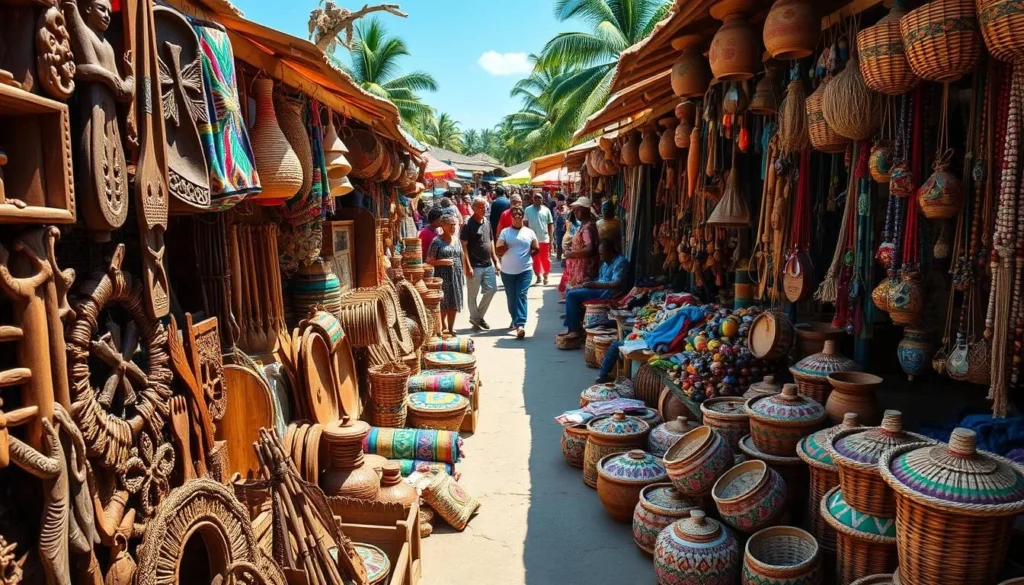
When shopping for souvenirs in Zanzibar, consider visiting local workshops and cooperative galleries to purchase authentic pieces directly from the artists. This not only ensures that your travel souvenirs benefit the island’s creative community but also allows you to bring home unique and culturally significant items.
Conclusion: Making the Most of Your Zanzibar Adventure
Zanzibar’s unique blend of cultures, history, and natural wonders makes it an unforgettable travel experience. As you explore this multifaceted destination, you’ll discover that the island offers an impressive diversity of things to see and do, transforming a simple beach vacation into an adventure filled with cultural discoveries, natural wonders, and sensory delights.
To make the most of your time on the island, it’s essential to balance popular attractions with off-the-beaten-path experiences. This approach allows you to discover the authentic character of Zanzibar, embracing the local rhythm of life, or “pole pole,” and building in free days for spontaneous exploration. By doing so, you’ll not only enrich your travel experience but also contribute to the local economy in a meaningful way.
Responsible travel practices are crucial in Zanzibar. Visitors are encouraged to respect local customs by dressing modestly outside beach areas, asking permission before photographing people, and choosing operators committed to sustainable tourism. Whether you’re drawn to Zanzibar for its pristine beaches, rich history, vibrant culture, or underwater wonders, the island rewards visitors who approach their journey with curiosity, respect, and a sense of adventure.
The memories you’ll create in Zanzibar, from watching the sunset over the Indian Ocean to navigating Stone Town’s labyrinthine alleys, will stay with you long after your trip ends. As tourism continues to grow on the island, conscientious travelers have the opportunity to support local communities through their choices, ensuring that Zanzibar’s unique cultural heritage and natural beauty are preserved for future generations to enjoy.
In conclusion, Zanzibar is a destination that offers a rich and varied experience for travelers. By embracing the local culture, respecting the environment, and engaging in responsible travel practices, you can ensure that your trip to Zanzibar is not only memorable but also sustainable.
The above is subject to change.
Check back often to TRAVEL.COM for the latest travel tips and deals.
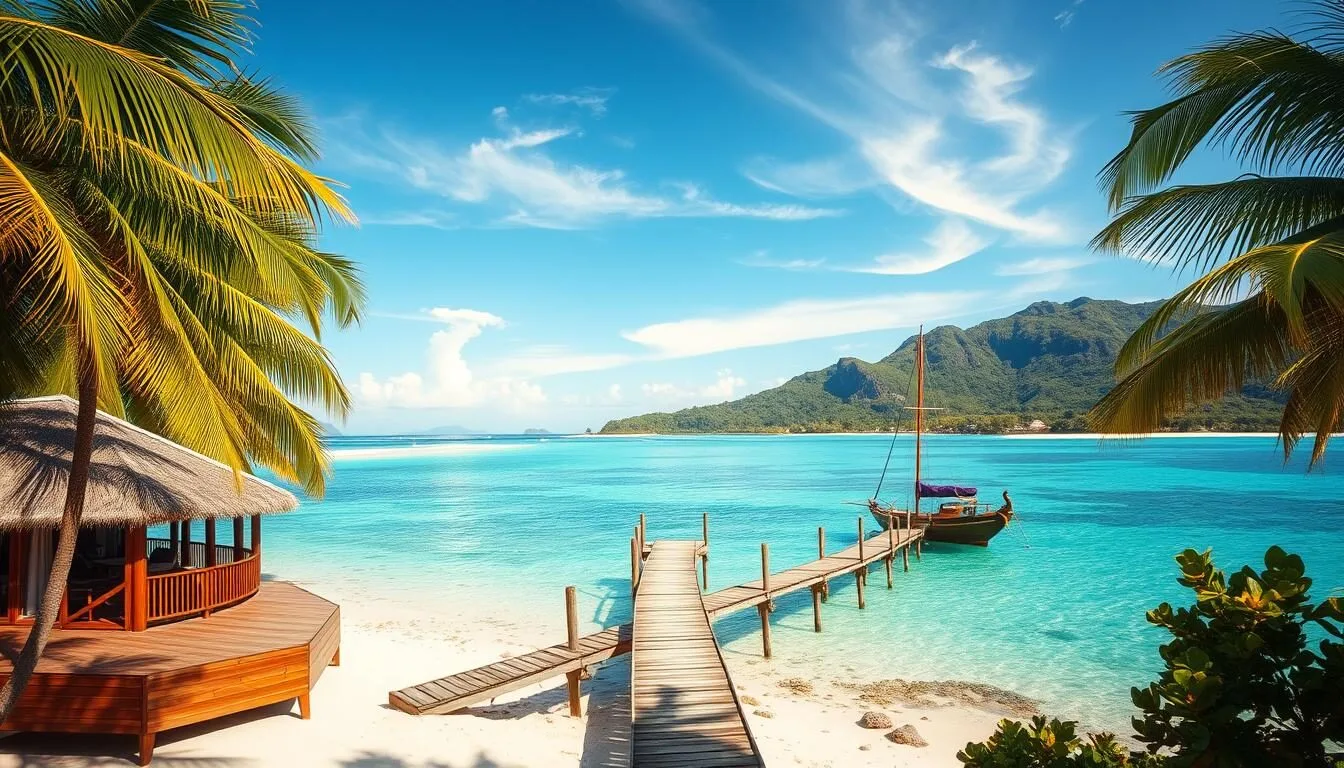
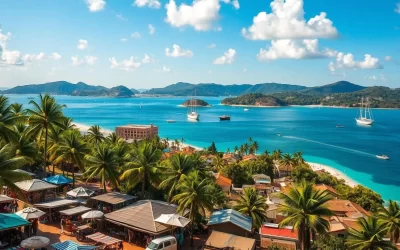

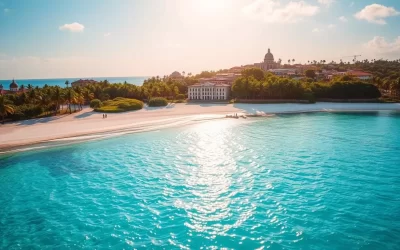
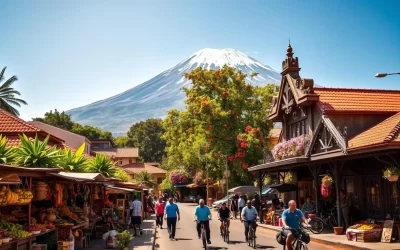

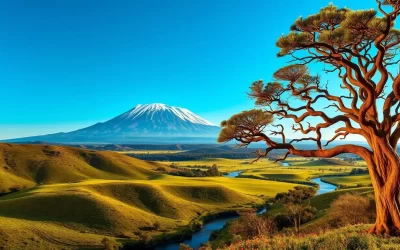
0 Comments